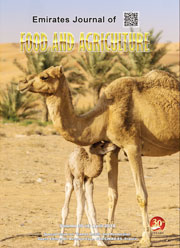Effect of ultrasonication on sensory and chemical stability of passion fruit juice during refrigerated storage
DOI:
https://doi.org/10.9755/ejfa.2018.v30.i1.1587Keywords:
Passion fruit; juice; thermal; sonicationAbstract
Passion fruit juice (PFJ) is very susceptible to thermal degradation and may benefit from processing by non-thermal methods such as sonication. This study pursued to test the effect of sonication on sensory quality and related chemical compounds of PFJ during refrigerated storage. Treatment conditions were those of a previous study where a microbiologically stable PFJ was achieved. The effect of ultrasound (20 kHz, 263 W, 89.25 µm) on sensory quality, ºBrix, total titratable acidity (TTA), ºBrix/TTA and reducing and total sugars of PFJ during storage at 4 ºC up to 10 days was studied. Sonication did not cause significant (P>0.05) effects on TTA, ºBrix/TTA and reducing sugars but significantly (P<0.05) increased ºBrix and total sugars content. Panel scored sonication PFJ significantly (P<0.05) lower in colour, flavour and aroma scores; but the global acceptance was similar (P>0.05) than that of non-sonicated juice. Results indicate that sonication of PFJ is a treatment that does not affect the global sensory quality of the product.










 .
. 